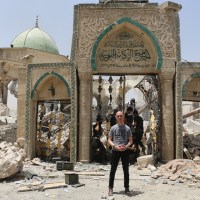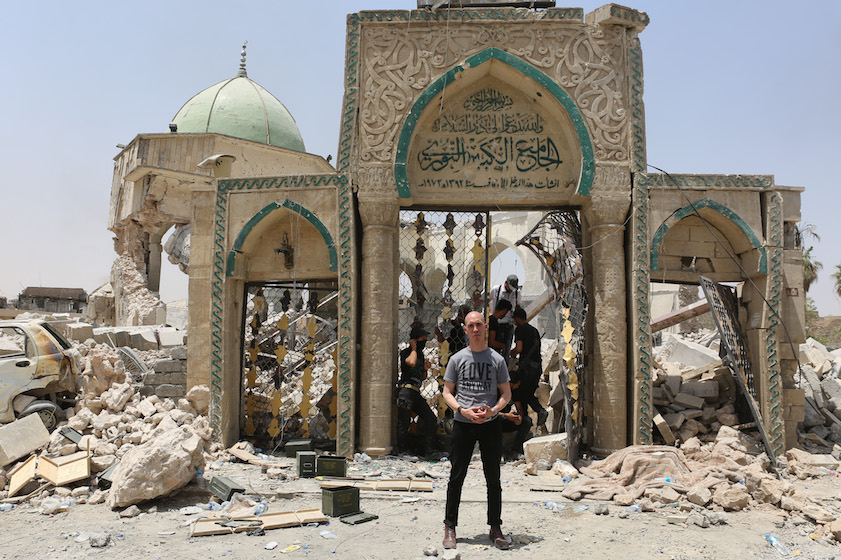This week we reached the site of the al-Nuri mosque, the historic 800-year-old monument in the heart of Mosul, where ISIS declared their caliphate in 2014. We waited years for this moment. So did the people of Mosul. But it was nothing like we imagined.
There is no way to overstate the importance of this place to the people of Mosul—or to the fight against ISIS.
This is the place where Abu Bakr al-Baghdadi, the leader of ISIS, announced an empire. With his declaration, ISIS became more than just another insurgent terror group. They declared themselves to be territory-holding power. A legitimate state. A force to be reckoned with.
And they used that force to crush and oppress millions.

We’ve waited so long for this place to be free. ISIS held the al-Nuri mosque and the city of Mosul for years. Even now, militants still cling to a few streets nearby. Thousands of civilians are still caught in the crossfire. Militants are using children as human shields as Iraqi forces advance.
We looked forward to the day when we could stand on the same spot where ISIS declared their caliphate and say, “It’s free now. ISIS, you are not legitimate. You don’t represent the people of Mosul.”
But ISIS could not bear to be seen losing the mosque to Iraqi forces. The sight of their flag being lowered from the minaret and replaced by an Iraqi flag—nothing would communicate more powerfully that ISIS had lost its claim to legitimacy.
They couldn’t allow that to happen.
So a little over two weeks ago, they rigged the place with explosives. As the army surrounded the mosque and ordered ISIS to surrender or be destroyed, the militants blew it up.
This is all that’s left.

But you need to know that the al-Nuri mosque is more than what ISIS did to it.
The al-Nuri mosque stood over Mosul for 800+ years. It was older than the United States, older than the British parliament. It was one of the most recognizable symbols in Iraq—they proudly displaced it on their currency. This place has stood for ancient civilizations that have lived here for centuries. If you grew up in Mosul, the al-Nuri mosque was woven into your identity.
And now it’s gone. Another casualty of this long and brutal war.

From the neighborhoods around the al-Nuri mosque, people have been fleeing to a “way station” that you helped set up, just outside the immediate combat zone. Mothers, fathers, grandparents, children—they’re receiving food, water, shoes for their feet, and medical care. None of it would be possible without you.
But the work is only beginning. The military battle for Mosul is not yet done—there are still pockets of resistance in Mosul. But the real battle, the battle for Mosul’s future, is still coming.
We will stand with the people of Mosul, long after the dust of war has settled, long after the cameras move on, long after the rest of the world loses interest. We still stand with them as they start putting the pieces of their lives back together.
The destruction here is overwhelming—and it’s not just the mosque. The rubble of war is everywhere. Almost every building here is damaged or destroyed. There are no services here—no water, no electricity.
The work of rebuilding is long. The wounds of war are not mended in a moment.
Thank you for being in this with us. Thank you for pressing into the pain. Thank you for caring about history and identity and monuments. But most of all, thank you for caring about people—and giving of yourselves to help the people of Mosul rebuild.


